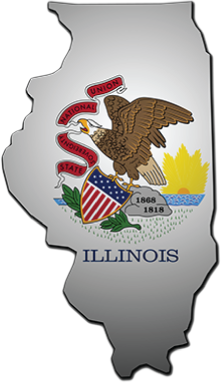Nursing Home Abuse Lawyers in Illinois
Nursing home abuse is a serious problem in the United States and deserves more attention. Nobody, no matter their age deserves to be neglected or abused.
Victims of nursing home abuse often suffer in silence, feeling ashamed, embarrassed, or even scared to speak up. Unfortunately, this means that many cases of abuse go unreported.
Nursing home abuse can take many forms, but some of the most common include:
- Physical abuse
- Sexual abuse
- Emotional abuse
- Neglect
Unfortunately, abuse is often perpetrated by people who are in a position of trust, such as nursing home staff members, and other residents. This makes it all the more difficult for victims to speak up.
SCHEDULE A FREE NURSING HOME INJURY LAWYER CONSULTATION TODAY
What are the Signs and Symptoms of Nursing Home Abuse?
- Broken bones
- Bruises, burns, or welts
- Cuts or lacerations
- Dehydration
- Malnutrition
- Facial or dental injuries
- Injuries from fall
- Advanced infections
- Bedsores
- Unexplained sexually transmitted diseases (STDs)
- Unexplained weight loss
If you suspect that your loved one is a victim of nursing home abuse, there are some steps you can take to help. The amount of time you have to act after a loved one is abused in a nursing home is limited. The sooner you speak to a legal professional the better. If you believe your loved one is a victim of abuse in a nursing home, it is important to act. Here are four things you can do to get started:
1. Seek Legal Support for Nursing Home Abuse
If you believe your loved one is a victim of abuse, you should consider getting legal help. An experienced attorney will evaluate the situation and help you protect your loved one’s rights.
SCHEDULE A FREE NURSING HOME INJURY ATTORNEY CONSULTATION TODAY
2. Speak to Your Loved One about Your Concerns
If you suspect abuse, the first step is to talk to your loved one. They may be afraid to speak up or they may not even be aware that they’re being abused. It’s important to have a conversation with them in a safe and comfortable setting to see if they’re experiencing any type of abuse.
3. Talk to Nursing Home Staff
It’s important not to accuse anyone of wrongdoing before you fully understand the situation. However, you can ask questions in a non-combative way. If you suspect a particular person of wrongdoing, speak to the manager or owner of the facility. Sometimes, abuse and neglect in nursing homes aren’t intentional. Problems sometimes arise due to understaffing, improper training, and staff burnout. Staffing issues might prevent staff from responding to urgent situations like falls or strokes. It’s important to share your concerns with those managing the facility and determine if changes or improvements are needed.
4. Contact Adult Protective Services in Your Area
If you believe abuse is occurring in a nursing home, you can reach out to Adult Protective Services. Alternatively, if you believe anyone is in immediate danger, you can contact law enforcement.
The authorities will launch an investigation and take appropriate steps to protect the residents of the facility.
Responsibility for a Loved One’s Safety and Well-being
In many cases, victims of nursing home abuse are reluctant to come forward out of fear of retribution from their abusers. Some don’t understand they are victims of abuse. They rely on their loved ones to monitor their well-being and take action if there is abuse suspected. It’s important to remember that there are laws in place to protect victims of elder abuse, and abusers will be held accountable for their actions.
Nursing home abuse is a serious problem in Illinois and across the country. If you suspect that your loved one is a victim of abuse, it is best to approach the situation calmly and gather as much information as possible. You can then decide whether or not to contact the authorities and/or pursue legal action. Abusers should be held accountable for their actions.
If you’d like more information about nursing home abuse or you have concerns about the treatment of your loved one in a nursing home, contact the Nursing Home Attorneys at (866) 251-0808.
CONTACT NURSING HOME INJURY ATTORNEYS – SCHEDULE A FREE CONSULTATION TODAY










